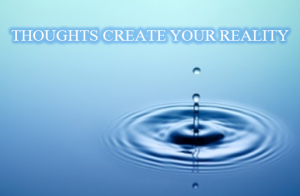So, what IS healthy eating? This phrase is thrown around a lot, and its meaning is vague at best! Here’s what I’ve learned during my eating disorder recovery.
We can argue all day about what foods are the healthiest, and even the experts can’t agree. Everybody seems to agree that fruits and veggies have lots of nutrients, but still, every body is different. When striving to “eat healthy,” consider both nutrition and what works best for your body (broccoli is generally considered healthy, but if it makes you feel ill, then it’s probably not healthy FOR YOU!). Don’t forget the importance of balance – eat a wide variety of foods, including treats*. This is basic intuitive eating. But here’s the thing …
Healthy eating isn’t just about what you put in your mouth.
Healthy eating also requires a good attitude and satisfaction with food and eating. Don’t believe me? Studies show that attitude and satisfaction from eating actually have a very significant effect on your metabolism and digestion – possibly even more important than what you’re eating!
So, eating nutritious foods isn’t enough. Eating nutritious food is not healthy eating if you’re forcing yourself to eat foods you don’t like … or if you’re feeling guilty or anxious during or after a meal. Just as good health requires both good physical health and good mental health, healthy eating also has both physical and mental components. Our bodies and our minds are intricately connected, so when our bodies and minds are not in harmony, we are essentially at war with ourselves – and you can imagine what kind of damage can result from constantly being at war!
Healthy eating = nutritious, balanced eating + a healthy, positive attitude toward eating
So, what does this have to do with eating disorders? It matters because most ED people don’t consider the last part of the equation. They think that eating salads every day = health … or eating raw vegan = health. That might be true if a person genuinely loves eating salads every day or eating raw vegan AND if that way of eating creates no difficulty or anxieties (and no restricting or binging behavior). But most people who strive to “eat healthy” focus solely on what they’re eating without considering how it makes them feel. This creates a disconnect between our minds and bodies – or even within our minds.
It is possible to derive both nutrition and pleasure from our eating. This is truly healthy eating!
This disconnect is the problem with eating disorders. An eating disorder essentially means that a person has an unhealthy relationship with food and with her body. How do  we fix that? For one thing, we can work on the right side of the equation above (the “attitude” part); in fact, fixing that part of the equation will go a long way towards fixing the actual eating part too. Don’t believe it? Try it and find out. Work on changing your attitude toward food. Experiment with different foods and eating situations, and find what gives you pleasure. When we change our thoughts, we change our reality.
we fix that? For one thing, we can work on the right side of the equation above (the “attitude” part); in fact, fixing that part of the equation will go a long way towards fixing the actual eating part too. Don’t believe it? Try it and find out. Work on changing your attitude toward food. Experiment with different foods and eating situations, and find what gives you pleasure. When we change our thoughts, we change our reality.
Do you have a healthy relationship with food? What does that equation mean for you?
* I use the word “treats” here loosely to refer to “play food” or food that is eaten purely for pleasure rather than nutrition; however, the actual practice of intuitive eating involves giving up labeling food as “good” and “bad,” so in reality, any and all foods could be considered treats if you enjoy them!
![]()
(c) Hungry for Recovery – Read entire story here.